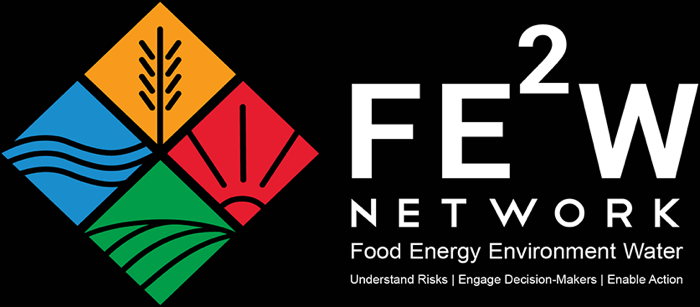
The Global Food and Water System (GFWS) platform is designed so users can easily explore the relationship between crop yields, genetic improvement, use of water and fertiliser and land area, on the gap between food production and food demand, along with the resultant gap between agricultural water demand and supply out to the year 2050. The exogenous drivers of the platform are per capita food consumption values (kcal/person/day) and human population projections that determine food demand. Food supply is calcuated by multiplying crop yield per hectare (determined by fertiliser and water use) by land area per crop adjusted by crop yield improvements. Agricultural water use is determined by land use, crops and area under irrigation as defined by FAO statistics noting that land under informal irrigation, especially in Africa, would increase the estimated global irrigated land area.
In the current version of the GFWS platform, 19 countries are included (Argentina, Australia, Bangladesh, Brazil, Canada, China, Egypt, France, India, Indonesia, Mexico, Pakistan, Poland, Russia, Thailand, Turkey, United States, Ukraine and Vietnam) as well as their major crops: wheat, rice, maize, sor- ghum, barley, oats and soybean.
Using the controls at the bottom of this page, you can vary the yield improvements, land area available for food production and irrigation methods and see the implications for the balance of food and water supply and demand.

